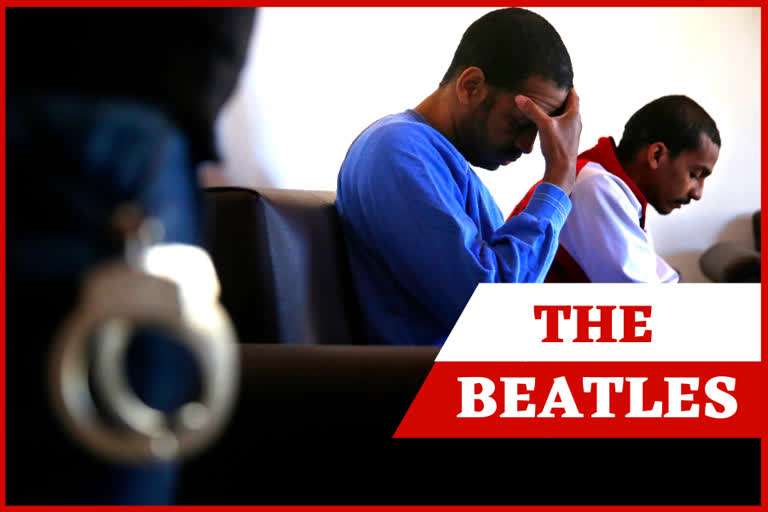Washington: The Justice Department unsealed charges Wednesday against two Islamic State militants from Britain, accusing them of carrying out a gruesome campaign of torture, beheadings and other acts of violence against Western hostages they had captured in Syria, including four Americans.
The charges are a milestone in a years-long effort by U.S. authorities to bring to justice members of the group known for beheadings and barbaric treatment of aid workers, journalists and other hostages in Syria. The men's arrival in the U.S. sets the stage for arguably the most sensational terrorism trial since the 2014 criminal case against the suspected ringleader of a deadly attack on the diplomatic compound in Benghazi, Libya.
Videos of the killings, released online in the form of Islamic State propaganda, stunned the U.S. government for their unflinching violence. The recordings routinely showed prisoners in orange jumpsuits on their knees beside a captor dressed in black whose native English drove home the global reach of a group that at its peak occupied vast swaths of Syria and Iraq.
Read also:Islamic State targets Afghan prison in attack killing 29
Relatives of four of the slain hostages praised the Justice Department for transferring the men to the U.S. for trial, saying, "Now our families can pursue accountability for these crimes against our children in a U.S. court."
The indictment describes Kotey and Elsheikh as "leading participants in a brutal hostage-taking scheme targeting American and European citizens" from 2012 through 2015.
In July 2014, according to the indictment, Elsheikh described to a family member his participation in an Islamic State attack on the Syrian Army. He sent the family member photos of decapitated heads and said in a voice message, "There's many heads, this is just a couple that I took a photo of."
Elsheikh and Kotey have been held since October 2019 in American military custody after being captured in Syria one year earlier by the U.S.-based Syrian Democratic Forces. The Justice Department has long wanted to put them on trial, but those efforts were complicated by wrangling over whether Britain, which does not have the death penalty, would share evidence that could be used in a death penalty prosecution.
